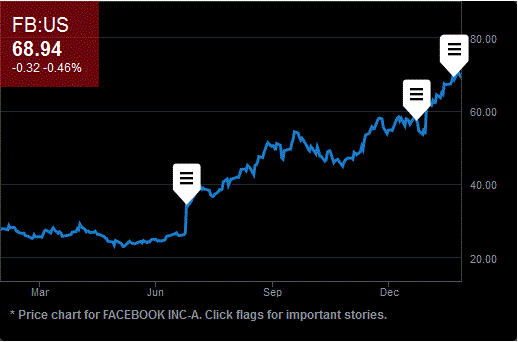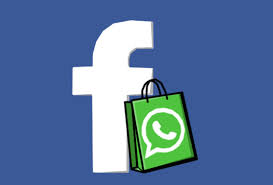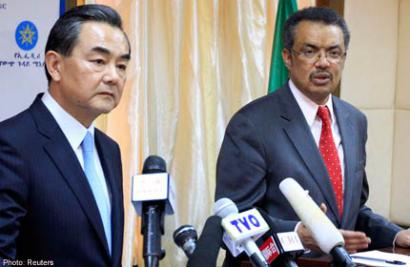Celebrating and Protecting the Global Internet By Ambassador Daniel Sepulveda, Deputy Assistant Secretary and U.S. Coordinator for International Communications and Information Policy, U.S. Department of State & Lawrence E. Strickling, Assistant Secretary for Communications and Information and Administrator, National Telecommunications and Information Administration (NTIA), U.S. Department of Commerce The U.S. government, working through the National Telecommunications and Information Administration (NTIA), has played a critical role in the stewardship of the Internet’s Domain Name System (DNS). But now is the time to transition that role, based on the success and maturation of the multistakeholder…
Read MoreCategory: featured
Corporate Governance and International Policy expert Sophia Bekele shares her view on the future of online Security in Africa
Source: CIO East Africa The AU’s Convention on the Establishment of a Credible Legal Framework for Cyber Security in Africa (AUCC) has been the focus of debate recently. DotConnectAfrica was among the first organizations to comment and highlight several issues on the draft legislation In view of this and to further shed light on online security issues in Africa, CIO East Africa editor Mike Ouma sought the views of Ms Sophia Bekele, an international policy advisor on ICT and internet issues. Below are excerpts: As regards the state of online…
Read MoreEdward Snowden Warns Us of the Dark Path Ahead
In written testimony to the European Union (EU), Edward Snowden explained in patient, well-written, detailed prose exactly why what the NSA is doing is so dangerous. Snowden reveals himself an articulate writer, and through that moves from mere whistleblower into an almost philosophical role. His testimony deserves your full read, so you should best stop right here and just go read it. For those who prefer some highlights, with commentary, please follow me deeper down the rabbit hole. Snowden says: The suspicionless surveillance programs of the NSA, GCHQ, and so…
Read MoreFacebook-WhatsApp Deal Haunted by Past Web Merger Flops
Facebook Inc. (FB) investors who pushed the company’s shares to a record after it unveiled the $19 billion deal for WhatsApp Inc. would be well served to remember — every Internet takeover of more than $10 billion has flopped. Last week’s proposed purchase would be the biggest Web acquisition in more than a decade and only the fifth ever to top that threshold, according to data compiled by Bloomberg. That puts it in the same category as AOL’s merger with Time Warner and Terra Network SA’s takeover of Lycos, which…
Read MoreHow Facebook will have to radically transform itself in order to justify buying WhatsApp
There has been endless high-quality discussion about why Facebook was willing to pay more than what half of the S&P 500 companies are worth for WhatsApp. My biased distillation of the consensus is, basically, Facebook wanted to keep WhatsApp out of the clutches of Google, and the sale was in stock at a time when Facebook’s share price is at an all-time high, so Facebook didn’t have much to lose. Or you might choose to believe Facebook’s stated reason, which is that WhatsApp could go to a billion users and that, with the…
Read MoreMicrosoft Targets Cheaper Phones for Global Internet Growth
Microsoft Corp. (MSFT), under new Chief Executive Officer Satya Nadella, will accelerate a push into mobile software, joining forces with hardware manufacturers and Qualcomm (QCOM) Inc. to develop cheaper phones for emerging markets. Microsoft said yesterday it’s working with Qualcomm on a low-cost phone design that developers and handset makers can use to build their own devices, and added partners including Lenovo Group Ltd. to make Windows smartphones. Nokia Oyj (NOK1V), whose mobile-phone business will become part of Microsoft, unveiled lower-priced handsets at the Mobile World Congress in Barcelona today.…
Read MoreThe ‘Internet Of Things’ Will Be Bigger Than The Smartphone, Tablet, And PC Markets Combined
The numbers being forecast for the Internet of Things (IoT) are truly mind-boggling. BI Intelligence finds that the number of everyday and enterprise devices that will soon be connected to the Internet — from parking meters to home thermostats — will be huge. BII 1.9 billion devices today, and 9 billion by 2018, according to BII estimates, roughly equal to the number of smartphones, smart TVs, tablets, wearable computers, and PCs combined. It will drive trillions in economic value as it permeates consumer and business life. In the consumer space, many products…
Read MoreUS playing catch-up in Africa
African consumer spending is projected to rise from US$860 billion in 2008 to US$1.4 trillion in 2020. No other region in the world boasts such numbers. ADDIS Ababa, the rapidly modernising capital of Ethiopia, is on track to host the tallest building in Africa by 2017. That landmark building, which will boast 99 floors of offices and hotel rooms, has a distinctly un-African name: Chuan Hui International Tower. The tower, together with a host of other skyscrapers in the city – including the US$200 million (S$255.7 million) African Union headquarters…
Read More‘.brands’ become reality as first branded gTLD delegations take place
This weekend ‘.brands’ became a reality with Monash University making a little bit of history, becoming the first such application to be delegated to the DNS root. In October, WTR reported on the delegation of the first new gTLD applications to the root zone. These related to IDN applications, and subsequent delegations (and sunrises) have centred on generic strings. The announcement that Monash University’s branded TLD is now live, then, is notable for making ‘.brands’ a reality. In its application, the Australian University states that registrations in the TLD will…
Read MoreObama proposes changes to NSA surveillance
U.S. President Barack Obama called for changes to U.S. National Security Agency surveillance, with new privacy advocates assigned to a surveillance court and a transition away from a controversial telephone records collection program in the U.S. U.S. President Barack Obama called for changes to U.S. National Security Agency surveillance, with new privacy advocates assigned to a surveillance court and a transition away from a controversial telephone records collection program in the U.S. However, Obama stopped short of major changes advocated by his own surveillance review panel and civil liberties groups.…
Read More





